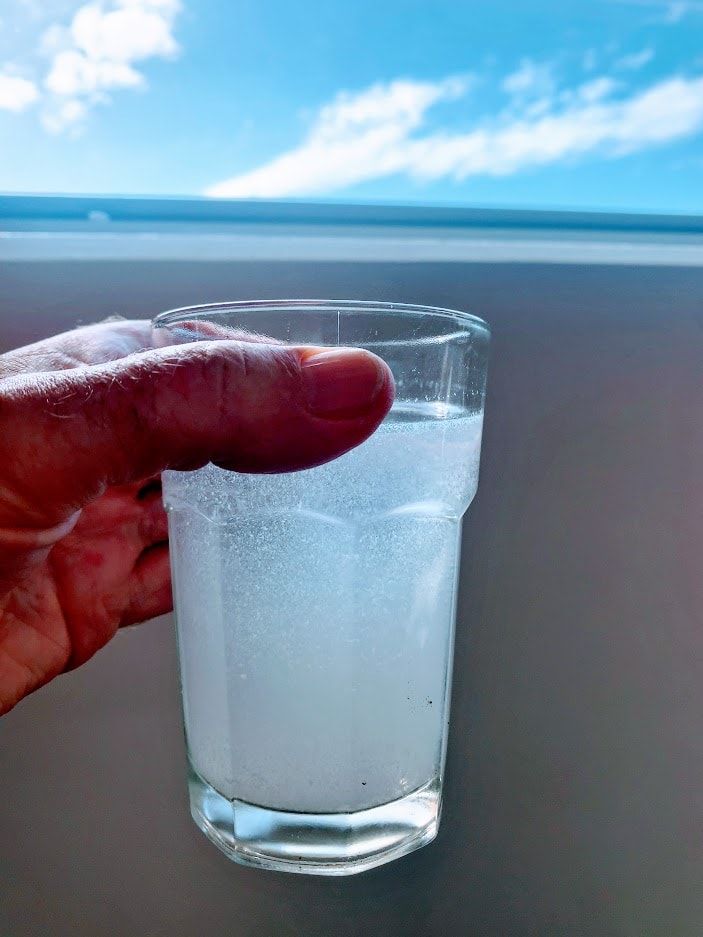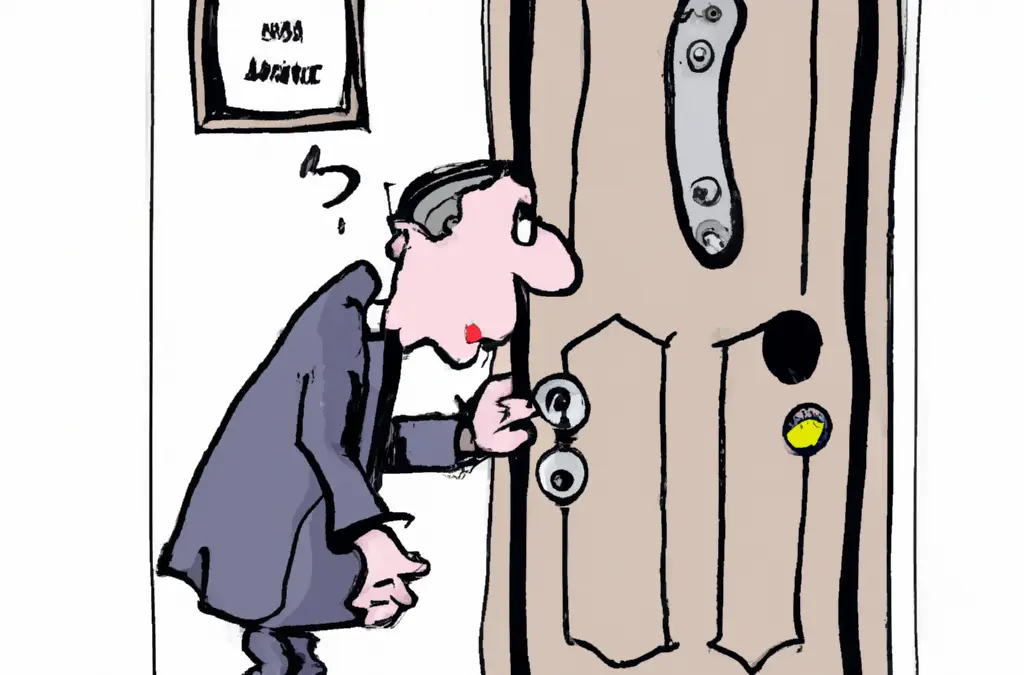
Why Is My Hot Water Cloudy?
Why does my hot water look yuck?
Why is my hot water cloudy is one of those perennial questions that arise for the plumbing technicians at Whywait Plumbing.
Generally, the problem is based around reoccurring issues of “what do you think causes cloudy (white, not dirty) water that comes out of the kitchen tap when on hot? It doesn’t do it in the cold; you don’t get the same residue if you boil cold. The photo below is the residue after 30 seconds when the water settles.”
Very simply, in most cases, cloudy, hot water is caused by dissolved gases in the water. We assure you it is safe to use.
To get cloudy water from your hot tap, you must create the right set of circumstances for everything to come together simultaneously.
So why is my hot water not clear but looks milky?
Turning on the hot water tap and having milky or cloudy water for a few seconds is not unusual. This is a common occurrence that a fundamental principle of physics can explain.
To understand why hot water can appear cloudy, you first need to know that all the water in your home is stored in your pipes under pressure. When water is under pressure, it has a higher capacity to hold dissolved gases. However, when you heat water, the ability to hold those dissolved gases is reduced. This creates supersaturation, which is when there are more dissolved gases in the water than they can carry.
When you turn on the hot water tap, the release of pressure causes those dissolved gases to be released in the form of tiny gas bubbles, which give the water a cloudy or milky appearance. Think of it like popping the cork off a bottle of champagne – all that pressure has to go somewhere!
What causes hot water to look milky or cloudy when you first turn on your tap?
If you’ve ever turned on your hot water tap and found that the water is milky or cloudy, don’t worry, you’re not alone. This common occurrence can happen when turning on the tap releases the pressure, often in an initial highly pressurised burst. The dissolved gas in the water comes out of the solution in the form of tiny gas bubbles, which fill the water and give it a cloudy or milky appearance.
But the good news is that this is a normal and healthy condition for your water. In fact, reasonable quantities of dissolved gas or air in water are not uncommon. And as the gas bubbles dissolve, the water will clear from the bottom up, like a disappearing act. You can easily observe the water rapidly clearing from the bottom up in a glass.
So, if you’re concerned that your hot water service is defective or your water is contaminated, don’t be. We guarantee that cloudy water does not mean anything wrong with your hot water service or water quality. In fact, gas bubbles in your hot water supply will increase with the increase in temperature of your water because the hotter your water, the lower the number of gas bubbles that can be held. So, give it a few seconds, and your hot water will be clear and ready to use.
What should I do if my hot water is always cloudy?
If your water is continually cloudy after the initial burst of hot water, it needs further investigation. Gas bubbles do not cause cloudiness that does not dissolve in hot water.
Seldom is it a fault with your hot water service? If the water does not lose the cloudiness within thirty seconds, you likely have a water filtration problem or a sediment buildup in the hot water tank.
Investigating cloudy, hot water needs to be undertaken by a licensed plumber, so if you are continuously asking yourself why is my hot water cloudy, you need to call us at Whywait Plumbing on (07) 5580 4311 and book a site visit.





 For the plumbers at Whywait Plumbing, Easter is a busy period with
For the plumbers at Whywait Plumbing, Easter is a busy period with 

